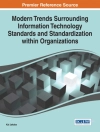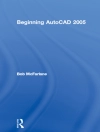The Ganges-Brahmaputra-Meghna delta has newly emerged ‘char’ islands, resulting from the deposition of sediment, which are very vulnerable, socially, institutionally and environmentally. This book explains how the governments of Bangladesh and the Netherlands and the International Fund for Agricultural Development cooperated on a land-based rural development project to give settlers security and purpose. It details how they engaged communities and civil societies, and implemented an infrastructure aimed at reducing flooding, improving drainage, and providing adequate drinking water and sanitation. The book describes the project’s application to crop and animal agriculture, and the development of value chains and encouragement of female participation. It considers the financial underpinning and infrastructure, as well as how to ensure the impacts of the scheme are enduring. The scheme serves as a model for support projects to vulnerable groups faced with climate change and other environmental challenges.
This book is suitable for students, researchers, specialists and practitioners in rural development, water resources, land management and soil science.
लेखक के बारे में
Andrew Jenkins has a first degree in social science and an MSc in Agricultural Engineering, with over 40 years’ experience in water management and rural development in South and South-east Asia. He has worked for ten years for the leading international CSO and Social Enterprise, BRAC, which was founded and is based in Bangladesh, where he initiated and coordinated the Impact Assessment Unit in the Research and Evaluation Division, and also participated in the Global Value research project with several European institutes and business schools.
He is currently the Team Leader of the Char Development and Settlement Project, Bangladesh, a Visiting Fellow at the Judge Business School, Cambridge University, and a Senior Strategic Advisor on Agricultural Water in South Asia to the 2030 Water Resources Group, which is a public/private partnership, also involving civil society, and supported by the International Finance Corporation.












